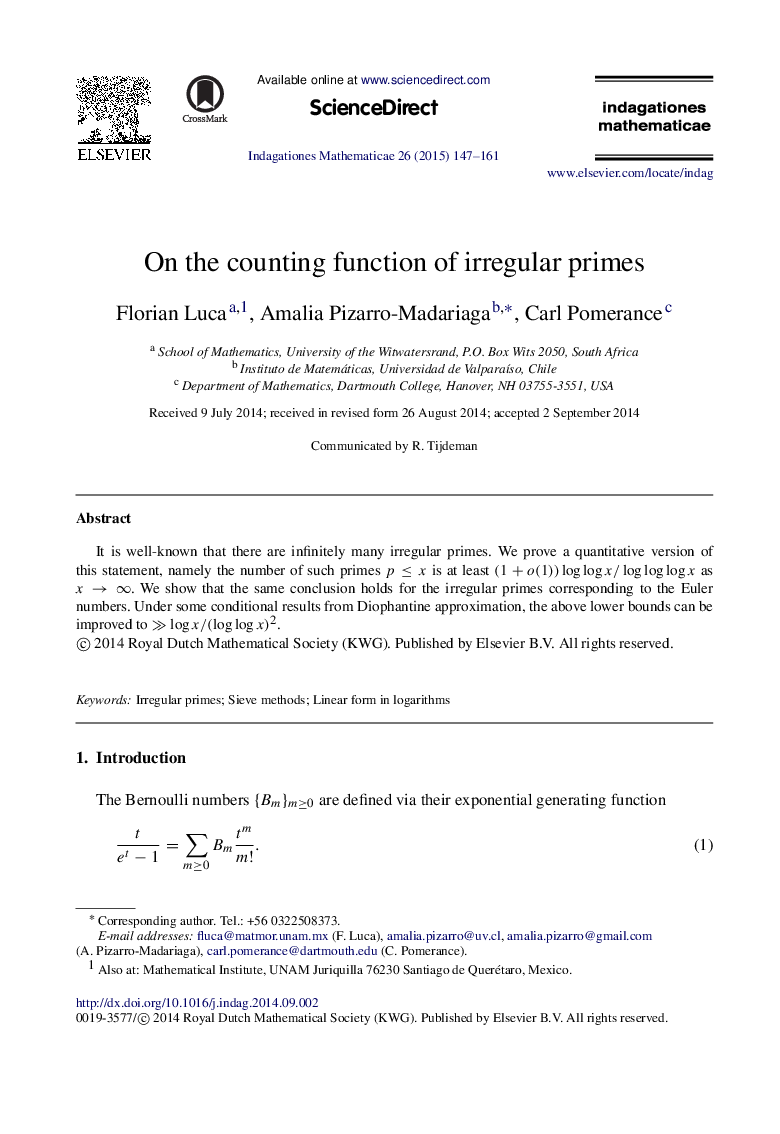| Article ID | Journal | Published Year | Pages | File Type |
|---|---|---|---|---|
| 4672776 | Indagationes Mathematicae | 2015 | 15 Pages |
Abstract
It is well-known that there are infinitely many irregular primes. We prove a quantitative version of this statement, namely the number of such primes p≤xp≤x is at least (1+o(1))loglogx/logloglogx(1+o(1))loglogx/logloglogx as x→∞x→∞. We show that the same conclusion holds for the irregular primes corresponding to the Euler numbers. Under some conditional results from Diophantine approximation, the above lower bounds can be improved to ≫logx/(loglogx)2≫logx/(loglogx)2.
Keywords
Related Topics
Physical Sciences and Engineering
Mathematics
Mathematics (General)
Authors
Florian Luca, Amalia Pizarro-Madariaga, Carl Pomerance,
